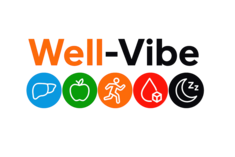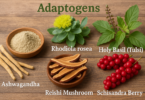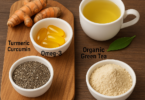It was last month that I was bloated, tired, and not really like myself. Ring a bell? If you’re wondering how to naturally boost your gut health, you’re certainly not the only one. Our gut is technically our second brain and impacts everything from how we feel to how we fight off infections. Being someone who transformed completely in gut health naturally, I’m thrilled to let you in on the secret to how I did it and the science involved.
My Gut Health Warning
On one especially stressful work project, my body did say, “That’s enough.” All the takeout dinners, late nights, and complete disregard for what I was eating caught up with me. I was 43 and came to the rude awakening that I couldn’t rewind like I used to in my 20s anymore.
As I did the research, the value of healthy food became immediately apparent. Fibre-rich, probiotic foods and nutrient-dense foods not only feed the belly, they feed the trillions of positive microbe helpers in charge of keeping digestive systems in top shape. These tiny assistants influence everything from nutrient absorption to mood.
The Gut-Brain Link You Should Not Overlook
To enhance gut health naturally, the process begins with realizing the profound gut-brain connection. You might not know that there is a constant conversation between brain and digestive system. Based on research in the American Journal of Physiology, the digestive tract produces nearly 90% of the serotonin, the natural mood balancer of the body.
This made so much sense to me. The brain fog, the mood swings, and the energy crashes were all possibly related to what was occurring in my gut.
My 3-Week Gut Reset Mission

Week 1: Elimination Phase
The hardest part was breaking up with some of my favorite foods. I temporarily said goodbye to:
- Processed foods with artificial ingredients
- Excessive dairy products
- Refined sugars
- Alcohol
- Gluten-heavy foods
Instead, I focused on whole, nutrient-dense foods. The first few days were rough; I won’t sugarcoat it (pun intended). But by day 5? The bloating had noticeably decreased.
Week 2: Introducing the Good Stuff
This is where things really got interesting. I began intentionally including gut-friendly foods:
- Fermentation powerhouses: Kimchi, sauerkraut, and kefir were my new best buddies. These foods are full of probiotics that put beneficial bacteria right into your system.
- Fiber champions: Feed the good bacteria with beans, lentils, oats, and lots of vegetables.
- Prebiotic foods: Garlic, onions, bananas, and asparagus give the fuel your gut bacteria require to prosper.
Research published in Cell shows that regular consumption of fermented foods can increase microbial diversity in just 4-6 weeks.
Week 3: Lifestyle Integration
It was not merely food. A study conducted in the Journal of Physiological Anthropology shows how the gut permeability and microbiome are affected significantly by chronic stress
Therefore, I added
- 15 minutes of morning meditation.
- A short walk following meals to help with digestion.
- Improved sleep hygiene (no screen time an hour before bedtime).
- 2 liters of water a day.
Not only were my digestive issues significantly better by the end of week three, but I also had more steady energy levels than I’d experienced in years.
The Surprising Benefits Beyond Digestion

What surprised me most was not merely the elimination of bloating and digestive distress. It was the ripple effects:
• Clearer skin: The adult acne I’d struggled with? Much improved.
• Improved sleep: It became simpler to fall asleep, and waking up actually felt fresh.
• Stable mood: The afternoon crankiness that my wife and children had grown accustomed to? Disappeared.
• Clear thinking: Workplace decision-making was more focused and not exhausting.
The Simple Changes That Made the Greatest Impact
You don’t have to overhaul your entire lifestyle overnight. These simple switches made the biggest impact for me:
You don’t need to revolutionize your whole life in one day. These minor changes were the most impactful for me:
- Morning routine: Swapped coffee first thing for warm lemon water, followed by coffee an hour later.
- Snack attacks: Switched the processed snacks to nuts, fruits, and vegetable sticks with hummus Meal spacing: Introduced a 12-hour overnight fast (less difficult than you think!).
- Mindful chewing: Taking the time to fully chew surprised me with the impact.
Your Gut Health Action Plan
Ready to enhance your gut health the natural way? Begin here:
- Start a food diary to recognize your own trigger foods.
- Feature one fermented food this week.
- Include 5 minutes of deep breathing before eating to stimulate your “rest and digest” mechanism.
- Reduce (don’t eliminate) gluten and dairy intake for two weeks.
- Drink at least 8 glasses of water every day Keep in mind that gut health is not a one-size-fits-all process. What seemed to work incredibly well for me may require adjusting for your specific body. Consistency and patience will beat drastic action, however, and they always prevail in the end.
The Bottom Line
I feel healthier today than I did at 35, and I think a big part of that is due to naturally focusing on gut health. The science is as clear as day: the microbiome in the gut impacts almost every function of the body. The good news is that you don’t need to turn to expensive supplements, extremist diets, to notice significant changes.
Ready to revamp your gut health? Begin with a single change this week. Your future self will reward you with improved digestion, more energy, clearer thoughts, and maybe a brighter attitude toward life.
What is the first step you’re taking toward improved gut health naturally this week? Your body is primed for positive change!, I look forward to seeing how the experience goes in the comments below.
Join our community here for weekly science-backed health tips, free meal plans, and carefully curated product recommendations delivered straight to your inbox!
Disclaimer:
This blog post is for informational purposes only and is not intended as medical advice. Always consult with a qualified healthcare professional before making any changes to your diet, exercise routine, or healthcare plan. The information provided is based on personal research and experience and may not apply to everyone







